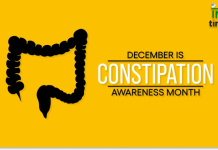
Observed every year on November 17, National Epilepsy Day focuses on raising awareness, promoting understanding, and providing support for those affected by epilepsy. This day brings together communities, healthcare professionals, and advocacy groups to shine a light on epilepsy, a neurological disorder that affects millions worldwide.
What is Epilepsy?
Epilepsy is a chronic neurological disorder characterized by recurrent, unprovoked seizures. These seizures occur due to abnormal brain activity, which can affect physical movements, sensations, and consciousness. While anyone can develop epilepsy, it often begins in childhood or in individuals over 60.
The Importance of National Epilepsy Day
This awareness day highlights the need for:
- Increased Public Awareness: Reducing stigma and misconceptions about epilepsy.
- Support for Patients and Families: Providing resources and emotional support for affected individuals and their families.
- Research and Funding: Advocating for more research on treatment and potential cures for epilepsy.
Types of Epileptic Seizures
Seizures vary significantly from person to person and can include:
- Focal Seizures: Originating in a specific area of the brain, affecting movements or sensations.
- Generalized Seizures: Involving both sides of the brain, often causing unconsciousness or convulsions.
- Absence Seizures: Common in children, involving brief lapses in awareness or staring spells.
Symptoms of Epilepsy
Epilepsy symptoms include:
- Sudden loss of consciousness
- Uncontrollable jerking or twitching movements
- Sensory symptoms such as unusual smells or tingling sensations
- Brief moments of confusion or staring spells
Diagnosing and Treating Epilepsy
A combination of neurological exams, brain scans (EEG, MRI), and blood tests help in diagnosing epilepsy. Treatment often includes:
- Medication: Anti-epileptic drugs (AEDs) are the first line of treatment.
- Surgery: For cases where medication isn’t effective, surgery to remove the seizure-causing area may be an option.
- Lifestyle Adjustments: Regular sleep, stress management, and avoiding seizure triggers are essential for management.
Living with Epilepsy
Epilepsy requires lifestyle adjustments but does not prevent people from leading fulfilling lives. Key tips for managing epilepsy include:
- Following medication and treatment plans consistently.
- Keeping a record of seizures to identify patterns and triggers.
- Educating family and friends on how to help during a seizure.
Breaking the Stigma Around Epilepsy
Epilepsy is often misunderstood, leading to stigma and discrimination. National Epilepsy Day is crucial for dispelling myths, such as the misconception that epilepsy is contagious or that it limits a person’s capabilities. Open conversations and awareness efforts help create a more supportive environment.
How to Support National Epilepsy Day
- Wear Purple: Purple is the recognized color for epilepsy awareness, symbolizing solidarity with those affected.
- Educate Others: Share information on epilepsy and its impact.
- Support Epilepsy Research: Donate or volunteer with epilepsy-focused organizations.
- Attend Events: Many communities host awareness events on National Epilepsy Day.
India Time Lines
Conclusion
National Epilepsy Day serves as a powerful reminder that epilepsy affects individuals across all walks of life. Through greater awareness and support, we can reduce the stigma around epilepsy, promote understanding, and provide essential resources for those living with the condition.
FAQs
1. Can epilepsy be cured?
Currently, there is no cure for epilepsy, but it can often be managed with medications and lifestyle adjustments.
2. Are seizures always dangerous?
While seizures can be serious, many are not life-threatening. However, safety precautions are essential to prevent injuries.
3. Can people with epilepsy work and study normally?
Yes, many individuals with epilepsy lead full, active lives with the help of effective treatment.
4. What should I do if I see someone having a seizure?
Stay calm, keep them safe, and gently guide them to the ground. Avoid restraining them and do not place anything in their mouth. Call emergency services if the seizure lasts more than five minutes.
5. Is epilepsy hereditary?
Some types of epilepsy have a genetic component, but it’s not strictly hereditary, and many factors can contribute to its development.




































ldyh3n
You made various nice points there. I did a search on the issue and found mainly persons will go along with with your blog.
это mailsco